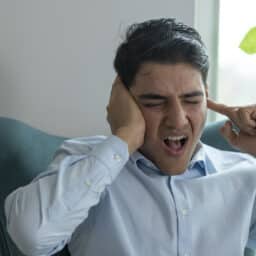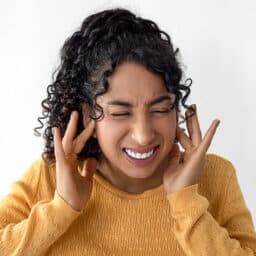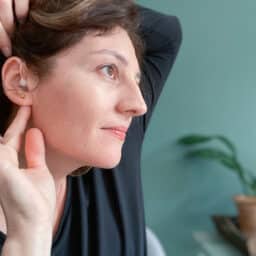How Tinnitus Management Can Improve Your Daily Life

Tinnitus, that irksome ringing or buzzing in your ear, can negatively impact your life in more ways than you realize. Let’s take a look at a few management strategies and how improving tinnitus symptoms can benefit your life. Tinnitus Management Strategies Three standard approaches for managing tinnitus include: Stress relief is another form of tinnitus…
Tips to Improve Communication This Valentine’s Day

February 14th is Valentine’s Day, which happens to fall in American Heart Month, giving you two excellent reasons to celebrate your relationship. Whether you and your partner have been together for 30 days or 30 years, take some time this month to think about the role communication plays in the happiness of your relationship, and…
The Connection Between Cardiovascular Health and Hearing

Your heart works hard to pump blood throughout your body, and keeping it healthy is essential for overall wellness. Poor cardiovascular health increases your risk of developing conditions such as diabetes and high blood pressure (hypertension), and those conditions can, in turn, raise your risk of developing cardiovascular disease. These conditions don’t just affect your…
Understanding Tinnitus and How It Starts

Tinnitus is a common symptom affecting an estimated 10% to 25% of adults. It manifests as a ringing or buzzing in the ear with no external source. Because of the subjective nature of most tinnitus, and the quick bursts it often manifests as at first, it can be tricky to pinpoint why you’re suddenly experiencing…
How Improved Hearing Makes Busy Gatherings More Fun

The holidays are coming to a close, but that doesn’t mean the busy gatherings are over. If you’re living with untreated hearing loss, you might be exhausted from a month of festive events. Part of that exhaustion stems from the constant effort required to decode speech when hearing loss muffles it. Luckily, hearing aids can…
Rediscovering Your Hobbies With Clear Hearing

We all have our favorite hobbies. Some people like to paint, others play Pickleball at Planet Pickle in Suwanee. Whatever hobby you enjoy, it’s crucial not to let hearing loss get in the way. How Can Hearing Loss Disrupt My Hobbies? There are three main ways hearing loss may disrupt your hobbies: While untreated hearing…
How Can Hearing Aids Help Strengthen My Family Relationships?

Family relationships can be complicated, but they often play a meaningful role in our sense of connection and belonging. One of the most important things for strong family relationships is communication. When hearing loss disrupts communication, we can see the effects ripple through the home. Let’s examine how poor communication impacts family life and how…
The Emotional Benefits of Better Hearing in Your Daily Life

The impact of hearing loss isn’t always immediately visible. When your hearing loss is mild, you might find yourself getting occasionally frustrated because people sound like they’re mumbling. As hearing loss progresses, feelings of isolation or sadness can accompany the frustration. While they’re not a direct mental health treatment, the clearer sound hearing aids offer…
How To Identify Subtle Hearing Changes Before They Escalate

We often call hearing loss an invisible condition. In this case, the word invisible doesn’t just mean there’s a lack of visible symptoms. It also refers to the tendency for people to ignore the condition. Only about 20% of people with inner ear hearing loss seek treatment, and many individuals wait ten years or more…
Hearing Aids for Medical Professionals: Finding the Best Fit for Your Job

Hospitals like Emory and Northside are fast-paced, high-stakes environments where effective communication is key. Whether you’re a nurse making rounds, a physician in surgery or a technician monitoring patient equipment, your ability to communicate clearly is essential to providing safe, effective care. An estimated 10% of all healthcare and social assistance (HAS) workers have difficulty…


